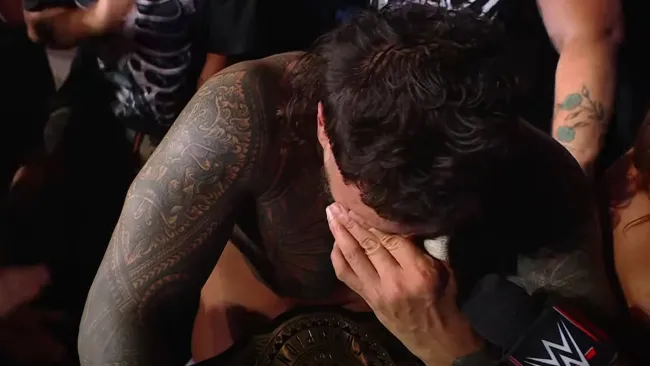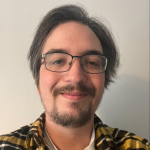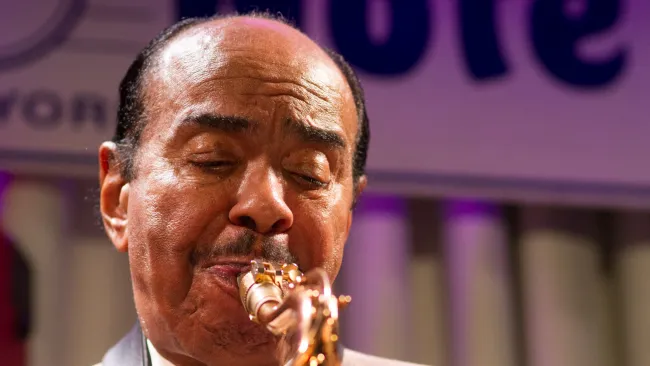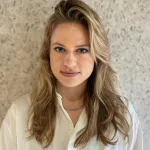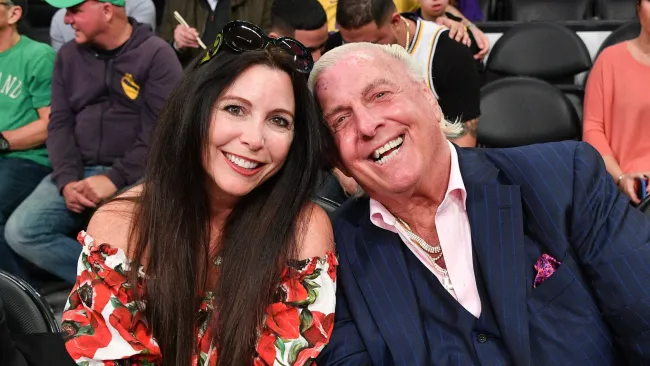"It is really funny to actually be in a position where I can literally say, 'I'm not a doctor, but I play one on TV.'"
Zachary Quinto has played doctors before, but he's "never played a doctor like" the one he plays on NBC's Brilliant Minds (September 23). Quinto plays Dr. Oliver Wolf, "based on a real-life person called Oliver Sacks, who was a world renowned, iconic neurologist and prolific author, complex, interesting, dynamic, beautiful person." One of the things that stood out to Quinto was how unique the show is. "There have been so many wonderful and influential medical dramas over the years, and a lot of them deal with cases that are easily identifiable or solvable...in our show, the mysteries don't often have a fix. I love living in that space of the unknown." Quinto is most proud of being part of a show that often has a hopeful message. "It's looking toward the light. That's something I think we can all use a little bit more of." But Quinto doesn't feel the pressure to sell the show, partly because it has "humor and heart and light and love, but also substance." "I'm not really interested in having my experience or my life be dictated by things that I have no control over."
SUBSCRIBE TO THE PARTING SHOT WITH H. ALAN SCOTT
ON APPLE PODCASTS OR SPOTIFY
Editor's Note: This conversation has been edited and condensed for publication.
What about this show intrigued you?
Well, the brain is the seat of consciousness. Consciousness is limitless. It's a kind of fascinating landscape to explore, and in so many ways, is uncharted. And that is certainly one of the things that drew me into this story, into this world, the idea of doing a medical drama that's dramatizing neurological diseases, disorders, injuries and conditions is something that I haven't seen on television, and it was a really unique point of entry into the format of medical drama. So that, combined with the fact that the character I play, Oliver Wolf, is based on a real life person called Oliver Sacks, who was a world renowned, iconic neurologist and prolific author, complex, interesting, dynamic, beautiful person. That was really interesting to me. And also the creative team, Michael Grassi, our showrunner and Lee Toland Krieger directed the pilot; their approach to the show was unique and really, really brought me along. I really saw them as people that I could collaborate with and connect to in a way. So there were a lot of things that drew me into it.
Was there anything you were surprised by, particularly through your research?
Well, I can't tell you how many times early in the process, when I was reading the episodes of the show, that I was like, "Well, that's made up. That's not real." I think one of the things that I learned is just how nuanced the brain is and how different disorders or conditions can affect someone's experience in a way that might be unfathomable until it actually happens. So in almost all of the cases that we deal with on our show, there is no resolution, there is no fix for the problem, so the conversation then becomes about adaptation and evolution and how we can find dignity and purpose in our experience, even in the face of tremendous adversity. And that's something that the brain allows us to do. There are workarounds in the brain, it's incredibly resilient organ. It's an incredibly malleable organ. And so where there are deficits, it can, in some cases, make up for those deficits, and circumvent the things that are restrictive. And then you add into that the idea of consciousness. What is consciousness, right? Well, we get to ask those questions and look for some answers on this show, and that is something different. There have been so many wonderful and influential medical dramas over the years, and a lot of them deal with cases that are easily identifiable or solvable, or the mysteries have a fix. And in our show, the mysteries don't often have a fix, and I love that. I love living in that space of the unknown. That, to me, is the crux of it. That's the nature of it.
From a creative standpoint, the brain is a perfect storytelling device, because there's so much unknown about it. The tension of not knowing is a great place of tension to start.
I think it's really relatable. I think a lot of people in the world have experiences where their lives are irrevocably changed or the lives of loved ones are irrevocably changed. And how do we preserve the dignity and the possibility of those experiences? Even in the face of that adversity, I think that is something that is unique and specific to our show and the stories we're telling. Michael Grassi, our showrunner—our fearless leader, we always say—if people watch our show and they see themselves in the stories that we're telling, then we're doing our job. And if it can be entertaining, and there is humor and heart and light and love in the show, but also substance in the show, I hope, and maybe some of that substance will invite people in to have conversations about things that are difficult to talk about or uncomfortable to talk about, neurological health, mental health, these are all things that are a huge part of our conversation, in a way now that they weren't a decade ago. I think this show is coming at a time that hopefully will encourage those kinds of conversations to continue.
Now that you're playing a doctor on TV, do you fear at all the amount of medical questions you're about to get?
I'm definitely not equipped to answer them. I've done everything I can to learn about and understand the conditions and the diseases and the injuries and the disorders that we deal with on the show. It is really funny to actually be in a position where I can literally say, "I'm not a doctor, but I play one on TV." It's a really unique thing to be able to say. But I think I've learned a lot, and I can't tell you how many times I read scripts early in the season where I was like, "This can't possibly be happening. This can't possibly be real," and it always is. So, call your real doctor, don't call me.
You've played doctors before, but never like this.
I've never played a doctor like this. It was always motivated by how [Oliver Sacks] could enhance the lives of his patients and how he could move toward the light and work with compassion. These are qualities that I find really meaningful to me personally, and I'm really proud to be a part of a show that's putting that message out into the world at this particular moment. It's looking toward the light, this show. That's something I think we can all use a little bit more of these days.
The dialog for a medical show feels like it would be difficult. Do you ever feel the anxiety of getting it right?
I read about everything that we're dealing with or talking about on the show, but we also have a wonderful team of advisers, and one of the writers on our show is a doctor, so we have access to her expertise. Then on set, we have an incredible team of nurses and medical advisers who are there every day with us so we can have sidebars, if it's a matter of pronunciation, then we can go off in the corner and we'll do like, a bit of a call and repeat. But the trick is that we're playing characters for whom this language is second nature. They know what it is. They don't have to think about it, right? It just rolls off their tongues. So our job as actors is to have a connection to the language where that same thing is true in the moment, even if we don't understand all of the nuanced aspects of the condition, or the medical situation. That's called acting. You have to understand that you're playing a character who knows everything that's underneath the word that they're saying and you have to look beyond the limitations of the language into the knowledge that exists underneath it.
I remember talking with Renee Zellweger about playing Judy Garland, and I asked her about how she did something, and she just responded, in her Southern accent, "Oh that's just actin'."
It's a skill set that we apply to circumstances, truthful behavior in imaginary circumstances, that's the definition of acting, right? So you find that and everybody has a different process. There are people who actually feel like they need to completely embody or inhabit or understand something in order to represent it. There are different techniques of acting as well. Everybody's different. But yeah, that's acting.
Considering that you're the lead of this show, do you feel any pressure in selling it?
I've never had an experience like this, to be honest. Yes, I've been on big shows. I've been number one on the call sheet before, in ensemble shows, but it is a different experience to be the face of a show. For me, it's been so rewarding and fulfilling and creatively satisfying, and that's all I have control over.
So now I'm in the part of the experience where I am proud of what we've made. I'm excited to share it with people. I hope people come to the experience with the same spirit that we made it from, and that's all I can do. So there is no pressure, actually, because I think if the work is good and the stories have resonance, then people watch it, and I hope they do. I want them to, because I want to keep telling these stories, because I think they're valuable and meaningful and interesting and fun and exciting and entertaining.
But I'm at a place in my life right now where I'm not really interested in trying to have control over things that I have no control over. It's actually kind of liberating. Like we all came together and we all invested ourselves and our creative integrity and sensibilities into making the show, and we did it in a vacuum, we did the whole first season. We're done now. We got to make the show with each other and for each other, and now we get to turn to the world and say, "Hey, this is what we made. You want to hang out with us? Are you interested in it?" And hopefully the answer is "yes," but if it's not, then, to me it just means that there's another story that I'm more urgently needed to tell, and then that's the story that I'll tell after this one.
So I hope we get to keep doing it. I'd love to keep working on this show. I love the people. The cast is amazing. They're really generous people, thoughtful people. It was a really good vibe up there in Toronto while we were working on it. Everybody was invested from the same place. Everybody wanted it to be good. And that really is a testament to Michael Grassi, our showrunner. He's a really special person, and he is positive and supportive and collaborative in ways that I feel like created an environment that everybody was incentivized to be the same way. And my job as number one on the call sheet is to be his closest proxy, because I'm there every day, and so I'm the one who has to really bring his vision to life in the spirit with which he intends it. That's the responsibility of number one on the call sheet, to make a show that's in the spirit of the person who's telling the stories. And Michael is a really special person, and I think that translates into the stories that he wrote and the characters that he created. And Oliver Sacks, you know, is our North Star, our springboard into these stories. I get what you're saying, but, but I'm not really interested in having my experience or my life be dictated by things that I have no control over.
I have to ask you about Heroes, because it really has become a cult classic. What do you think it is about that show that resonated with so many different people?
Well, it's a good question. It's really interesting to come back to NBC. That show changed my life. That show set me on an entirely different path that I had been on previous to it. And interestingly, the catalyst of that show, the catalyst of Heroes was a solar eclipse. That was the inciting incident in the pilot. And we started filming Brilliant Minds on the day of a solar eclipse, April 8, 2024, so this kind of return to an experience that I had so long ago, that was so influential to my life. I guess I would say that Heroes and Tim Kring's consciousness and imagination captured something that was bigger than the story itself. I think it's a message that's really valuable today, right now, especially. Heroes was a show about people awakening to their power and recognizing that it's the things that we share and not things that divide us, that is where the power lies. It transcends identity and culture and nationalism and race and gender and all these things. And so I think Heroes—and in a similar way to Star Trek, actually—there's a vision of humanity that is optimistic and and faith-based, right? Faith, humanity is, I think, the foundation of both of those projects, and so I think that's what broke through and made it such a global phenomenon.
How often do you get asked about a Star Trek sequel? I'd imagine often.
It's been coming up a lot lately because I'm doing press for this. I don't know if we'll do more. I don't know what's happening over there. What I know is that it was probably the single most influential experience that I've had creatively and professionally and personally. My relationship with Leonard Nimoy, we met in 2007 when we did the first film, and we became incredibly close and had a very profound relationship for the last decade of his life. And through Leonard, I got to become very good friends with his wife, Susan, and since Leonard's passing, Susan and I have continued and deepened our friendship, and she actually appears as one of the guest stars on Brilliant Minds. Star Trek for me, has had many creative and personal reverberations over the years, and my friendships with the cast of that film have only deepened and continued. I'd love to go back and explore it, but it's also an example of something I have no control over. I'd love to do it, and if we get to do it again, wonderful, if we don't get to do it again, it shaped and changed my life in ways that I will be forever grateful for, and that is something that I hold with a lot of gratitude. God-willing, we get to do it again, but who knows.
Request Reprint & Licensing Submit Correction View Editorial GuidelinesAbout the writer
H. Alan ScottShare on Twitter
A writer/comedian based in Los Angeles. Host of the weekly podcast Parting Shot with H. Alan Scott, every week H. Alan is joined by a different celebrity. Past guests include Tom Hanks, Keke Palmer, Melissa McCarthy, Michelle Yeoh, Jeff Probst, Tiffany Haddish, Jamie Lee Curtis, Idris Elba, Bette Midler, and many more. He also writes the Parting Shot portion of the magazine, the iconic last page of every issue. Subscribe to H. Alan's For the Culture newsletter, everything you need to know in pop culture delivered to your inbox every Tuesday and Thursday. H. Alan has previously appeared on The Jimmy Kimmel Show, Ellen, CNN, MTV, and has published work in Esquire, OUT Magazine and VICE. Follow him @HAlanScott.
A writer/comedian based in Los Angeles. Host of the weekly podcast Parting Shot with H. Alan Scott, ... Read more
Disclaimer: The copyright of this article belongs to the original author. Reposting this article is solely for the purpose of information dissemination and does not constitute any investment advice. If there is any infringement, please contact us immediately. We will make corrections or deletions as necessary. Thank you.
